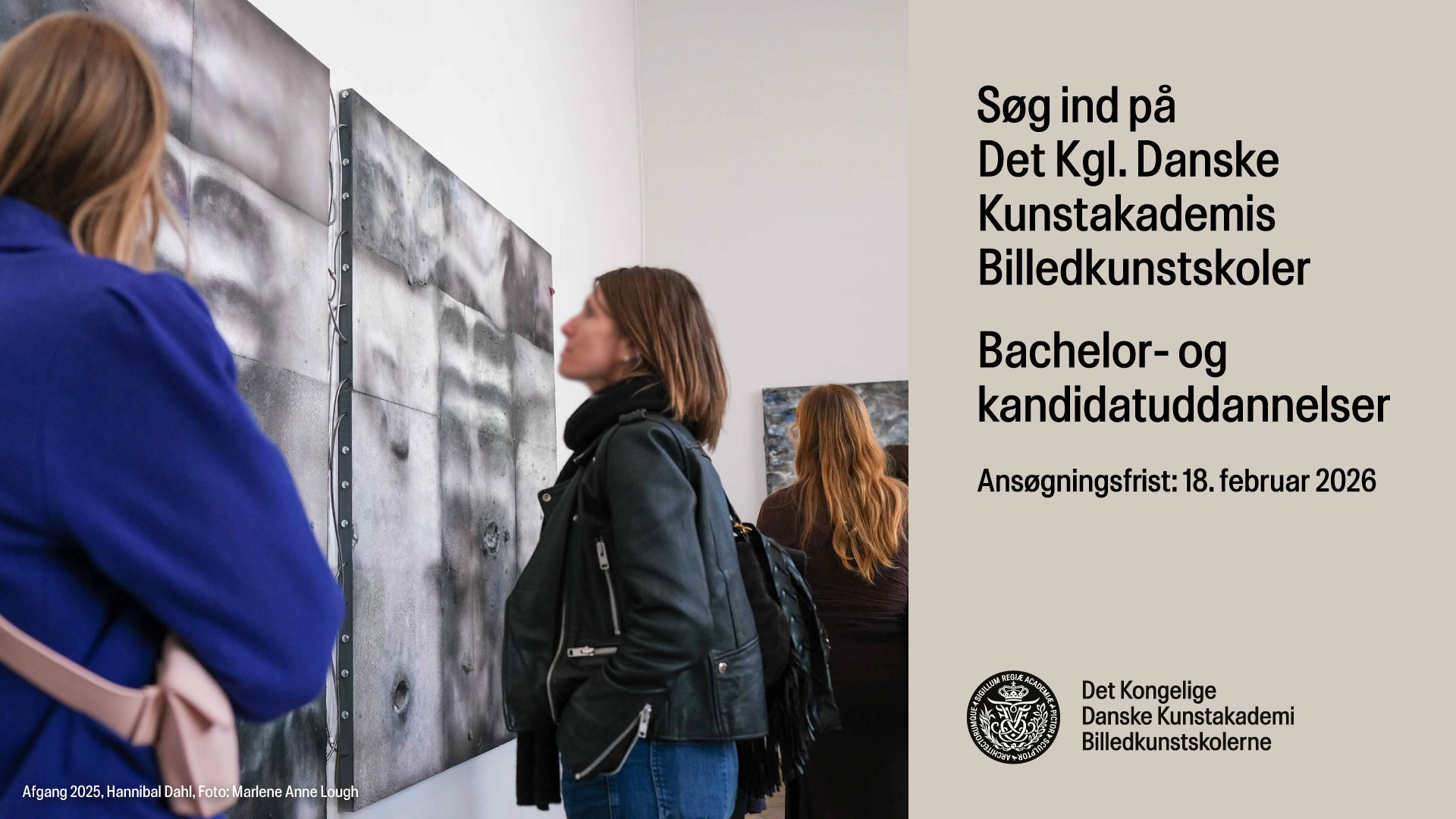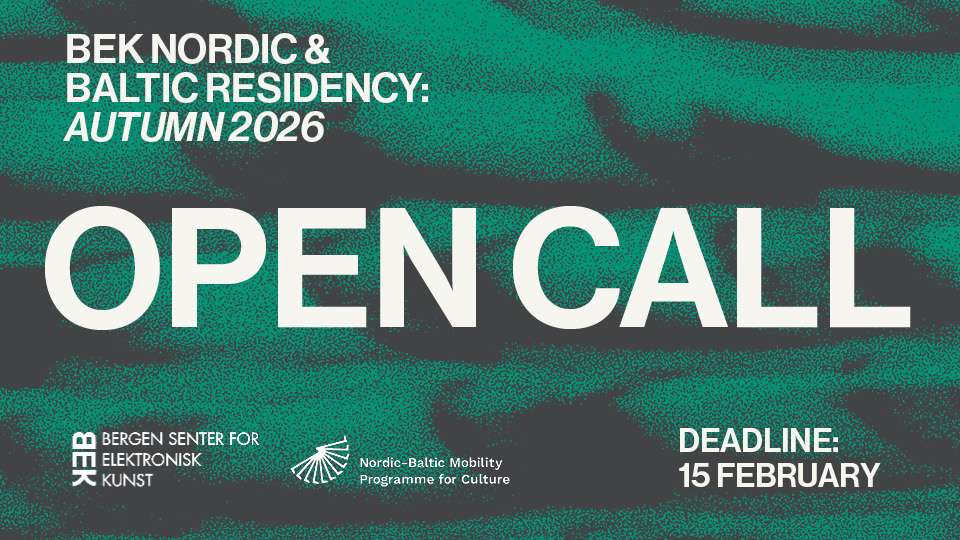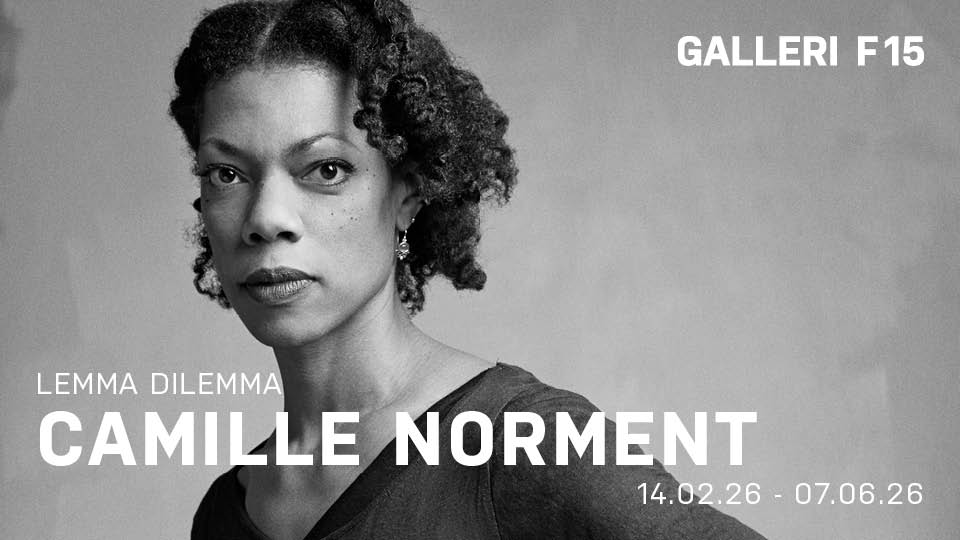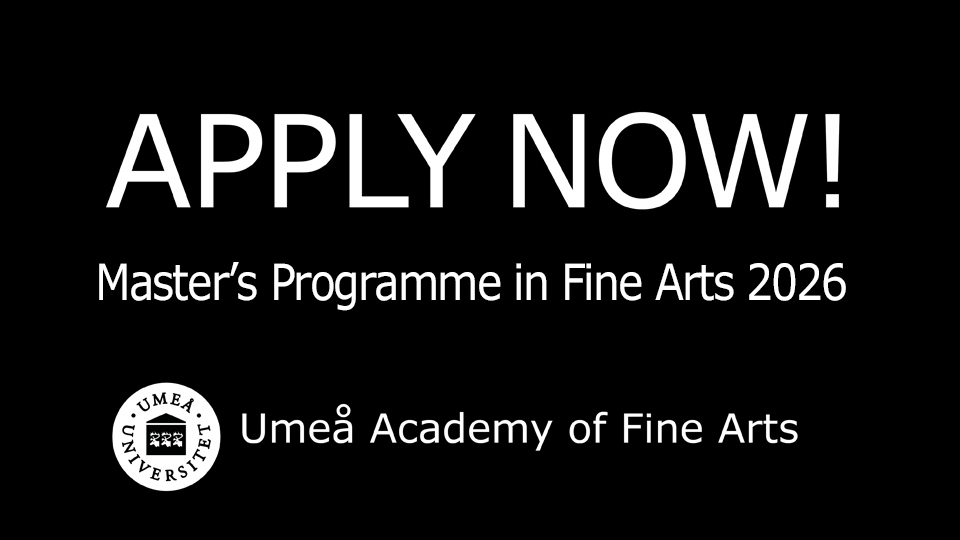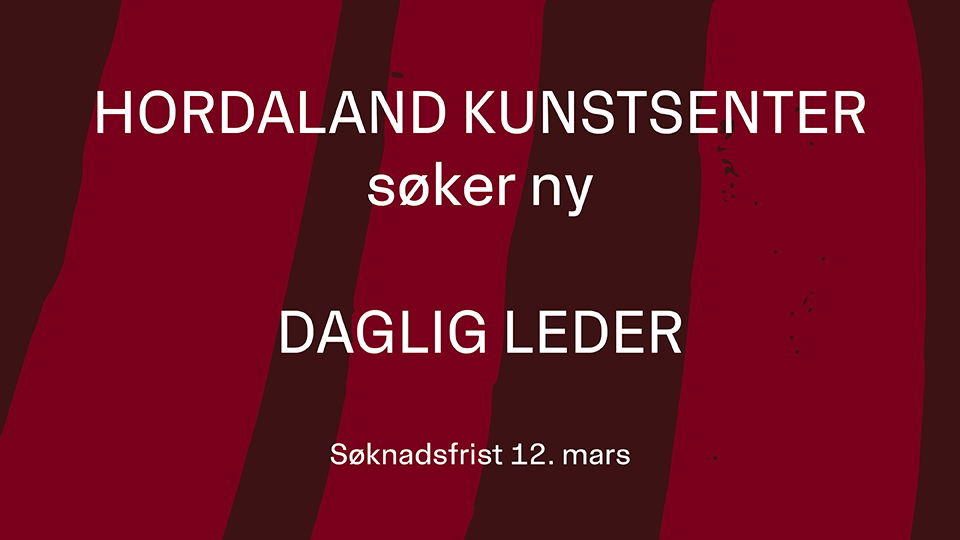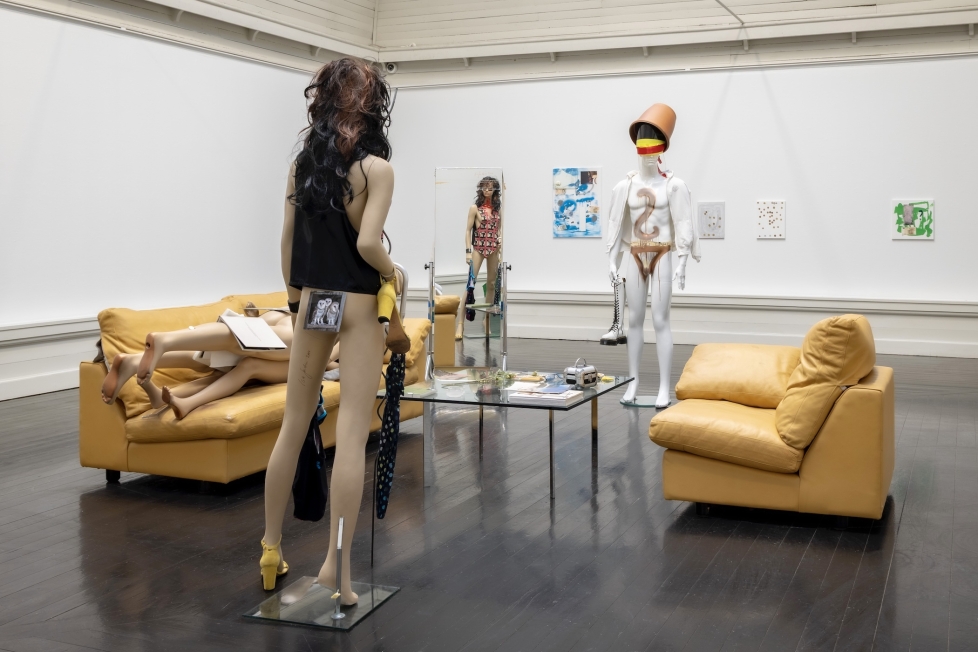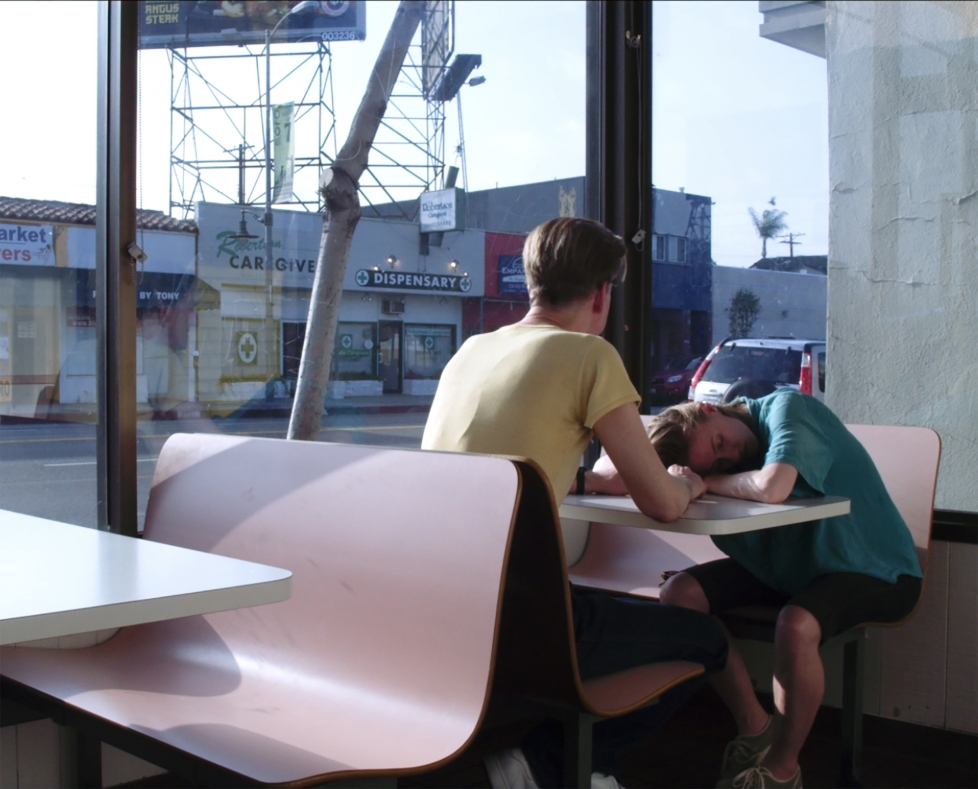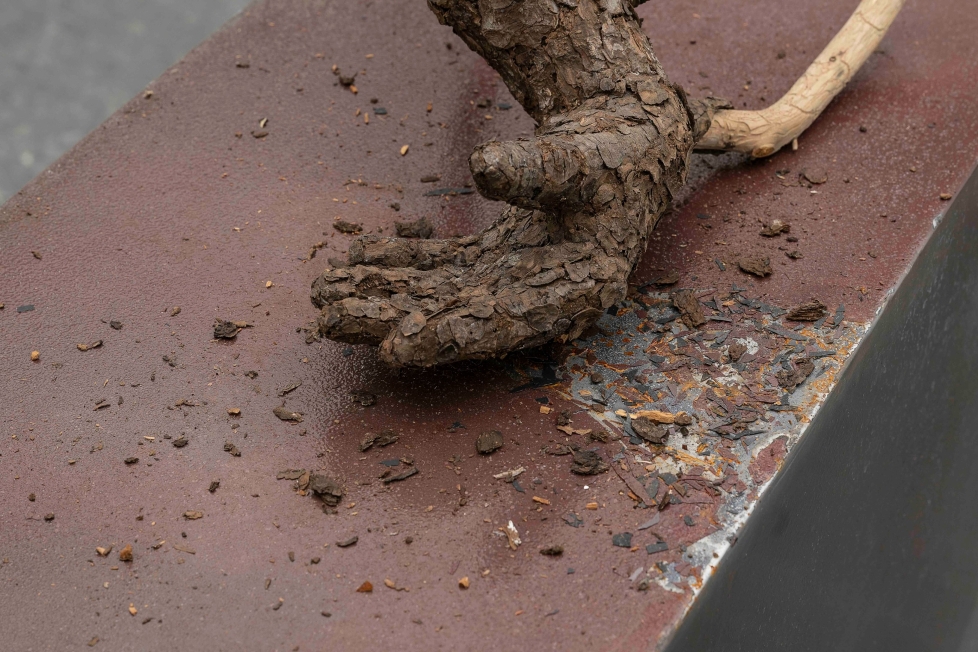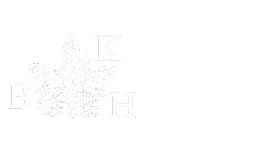
Kan hende vil tiden opphøre å være en kategori og heller bli et felt. Dette er en av mange tanker som den kunstneriske lederen for den trettende Documenta-utstillingen i historien (nå med offisiell stavemåte: (d)OCUMENTA 13), Carolyn Christov-Bakargiev, fremsetter i dette intervjuet. Muligens kan denne tanken også fungere som en slags allegori på omstendighetene rundt selve samtalen.
Read this interview in english.
Christov-Bakargiev diskuterer her bl.a. tanker omkring «kognitiv kapitalisme» og hvordan denne trenger arméer av såkalte «kuratorer» til å samle og sortere data og informasjon, og så videre bearbeide og presentere dette.
Opprinnelig var Kunstkritikk tildelt mer tid til dette intervjuet, og var ditto forberedt. Men bare få timer før avtalen ble møtetiden kuttet ned fra to timer til 25 minutter. Det sier seg selv at den enorme størrelsen på den kommende utstillingen og den allerede formidable mengden av kuratoriske (anti-)statements som nå er tilgjengelige i forbindelse med den overstiger det 25 minutter (eller to timer) tillater en å diskutere. Dermed ble en ganske grundig skisse med ulike spørsmål og tema raskt omdannet til en slags «molekylær» pressekonferanse og det hele foregikk bokstavelig talt idet Christov-Bakargiev var på vei ut av døren, avbrutt av telefonsamtaler og emails, og inn i den ventende drosjen på utsiden av Office for Contemporary Art Norways lokaler.
Samtalen og dens setting illustrerer kan hende den flyktige rastløsheten i dens tema så vel som ulike beskyldninger om unnvikenhet og vaghet i forbindelse med (d)OCUMENTA 13s tidlige stadier av forberedelse og PR. Alt dette kan kanskje, i alle fall delvis, forklare mange av de ofte overraskende og distraherende vendingene og avbrytelsene i samtalen som følger. Samtidig er Christov-Bakargiev så idérik, energisk, varm og gjestfri at hun er i stand til å åpne betydelige glimt av briljans i en temmelig stressende og (tids-)presset intervjusituasjon. Intervjuet gjengis på originalspråket.
Last night, someone very important in the art world suggested that I open this interview with the following question: What is the latest development in German meteorite science?
Ah. I understand that whoever asked this question does follow the documenta activities because we are interested in meteorite and astronomical science… But, I don’t know what the latest development is. Do you?
I have no clue, I’m afraid. You are also particularly interested in biology. How come?
I’m interested in neuroscience… I’m interested in disorientation and learning how to orientate oneself in space. Which is why meteorites are interesting. Do you know what is in the world but is older than the world?
These meteorites?
Sure.

Could this mean you’re also interested in one of the latest developments in philosophy, such as Quentin Meillassoux and «speculative realism» that is inquiring about what’s «after finitude»?
No! Not at all. I’m interested in the latest radical political thinking such as multinaturalism versus multiculturalism…
So…
This sounds surrealist, but I also love surrealism. I love Salvador Dali; he is one of my favorite artists.
Is it imperative to be oriented in these diverse scientific fields…?
Why? Because I like things I don’t understand.
Yeah, because I wanted to ask you, because in your writings in relation to (d)OCUMENTA 13 you seem to argue that the status of the old, 20th century conception of art is changing… That «what is art» is completely changing…
I don’t have any declarations; I only have questions. I often ask myself whether contemporary art is a movement of the 20th century. That is true. But I don’t use the word «Status». It is a very patriarchal word. It comes from the Latin stare – to stand. I am very interested in etymology. «Status» is not a word that I would ever use. But I think that I always ask myself questions, like: Will art exist as a field? I’m not sure it will. That doesn’t mean that artists won’t exist. But the field of art won’t necessarily exist. Humans tend to articulate fields in different ways in different moments of history. Philosophy didn’t exist twenty thousand years ago, but humans did. Then certain fields die out, like alchemy.
Your documenta, that is, the one that you are directing also by asking some of these questions – will it impact, or radically change, or even erase, certain aspects of the field, or fields, that we today call «contemporary art»?
Nobody erases fields. They just become less interesting as ways of constructing and classifying what humans do. The things that people do continue to occur. They will continue to paint, to draw, to think, and to write. But people are not interested in the way they are classified. We might get museums of time, instead of museums of art or science. Maybe we’ll have time as a field and not time as a category. This is because time as a category developed with modernity along with the need to measure time. We didn’t use to have synchronized time: it was 12 o‘clock when the sun was directly over your head, and it was 12 o‘clock ten minutes later in the neighboring village because there the sun was above their heads ten minutes later. That whole thing, synchronizing time, occurred with modernity. Time might be a field, but not a category. I really haven’t told you anything about documenta?
Not really? Have you?
I like Salvador Dali a lot.

So, you would like to include him?
I don’t know. Would he have included himself?
Probably…
I don’t know. If he were alive and doing documenta…Would he have included himself? Would he even have done it? I don’t know.
OK. So I will have to apologize for the bad wording, «status». To my defense it was not in my original question, it just popped up when I tried to come up with a really thorough question on the go…
Don’t be sorry. Each one of us uses language differently.
Two words you do use a lot, especially to describe (d)OCUMENTA 13, are «collapse» and «recovery»…
Yes, and destruction and reconstruction…
Like the processes regarding the meteorites…
The ancient Indians knew that the meteorites fell from the sky, but nobody believed them until a man from Vienna verified it in the 17th century. In Europe they thought meteorites came from the earth. Can you imagine? And do you know how and why we have Aristotle and Plato? Because the Arabs preserved Aristotle’s and Plato’s texts and then translated them. Aristotle and Plato weren’t preserved in Europe; they only came back into Europe through the Arab texts and translations. Nobody knows that in Europe. They just think that everyone was always reading them.
Well, we learned that first thing at university. In History of Religion courses, for example…
Religion? Why is everybody asking me about religion here?
No, no… I didn’t ask you about religion. I just said that the fact that Muslim and Arab scholars preserved the texts of Aristotle and Plato is well known. And, that in Norway, for example, we learn this when we study the History of Religion at university…
They tell you that in religion class in Norway? That’s fantastic. But would you mind taking out any references to religion? Do we have to talk about religion?
I wouldn’t mind doing that, but we are not talking about religion. I just said that with regards to the manuscripts of Aristotle and Plato…
I can tell you about the logo. Do you want to know about the logo?
I would rather go on with my questions? I want to ask you about knowledge production. Especially in relation to what art could be, or should be… One is talking about the «pedagogical turn», and so on… If you could say something about the inclusion of biology, quantum physics, astronomy etc. in the production of (d)OCUMENTA 13?
The last twenty years of the digital age have really changed the way we approach experience and knowledge…There are less hang-ups on the specificity of fields. I’m not interested in doing interdisciplinary projects, like bringing together a scientist and an artist to collaborate. That’s not the point. I’m interested in alliances of different people who have expertise in different areas. People who can jointly figure out new ways of approaching understanding and their positions in the world at a time when knowledge capitalism is emerging. Knowledge capitalism is based on certain molecular activities where people are very isolated and located in different parts of the world. The writer is in one place, the photo editor in another, the designer in yet another, and so on. You have a labor force made up of people who are not working together in the same room. That allows for a very strong control over those individuals that together form and produce something which is a product of their individual expertise. This is a product. I don’t believe that there aren’t workers producing the hardware for the computers, or that there aren’t farmers. Just as there were farmers in the industrial age, there still are farmers today. They didn’t have a voice as much as say the industrial laborers in the new urban conglomerates…They didn’t have a political agency. Now, it’s not that the farmers and industrial factory workers don’t exist. It’s just that the political agency doesn’t necessarily lie with those people as much as it lies with the people who are making the products that are needed for the machine of society to work. And that is a digital machine. It needs very good mathematicians to make the fastest computers for the bank. It needs very good curators, as they call them, to work in the sciences. In the big science departments – in biology, in genetics, at universities, etc. – they have these curators that have to weed through 30,000 results in order to bring them down to 5,000… Then another biologist analyzes that data… They need an army of these curators to collect, select, and process all this data. That means that artists and so-called creative people are needed. For example… Think of the Google offices… They encourage creativity in the afternoon during moments of leisure. You don’t have to work, but you shall write poetry or something like that instead…Of course, it all belongs to Google – everything you make during your afternoon off-time at the office does. So, there are problems around the property of these intellectual products, around these knowledge products made by these armies of people that are separated and are working as molecules. Why are they doing this? Because of narcissistic disorders. Because of panic attacks. The greatest cause of death amongst adolescents in Italy today is anorexia. These things are signs of a society that has countless narcissistic disorders… It’s the megalomania of being able to access information and use the digital, and then the depression of not being able to process it… of not being able to have an external hard drive.
And…

I really like the French sociologist Michel de Certeau, who in the 1970s wrote a book called The Practice of Everyday Life. It was about the fact that you don’t necessarily have to be alienated. He was thinking about this advanced consumer culture, and its products, but that you could appropriate, reinvent and reuse elements in the form of bricolage. That was okay in the 70s and I still kind of subscribe to that theory today. How to become aware of the fact that you’re giving away your time, energy, your health, your mental health, etc. by uploading all of these surrealist films for free on YouTube. You’re doing this intellectual labor, you’re producing knowledge by archiving and digitizing all this stuff from the past. And no one has enough money to pay everybody to do that; there is so much that needs to be done to transform everything. So basically, the system is using people’s narcissistic disorders to turn them into slave laborers. There are all these slaves working all over the world for free, uploading. And they do it in exchange for becoming famous. Everybody gets his or her fifteen minutes of fame… Andy Warhol’s idea actually happened. Actually, you get fifteen hours a day of fame if you can get enough hits on your YouTube list… It’s a form of slavery and alienation of the creative sensibilities. Therefore, the paradox and challenge is: how do you not be creative? How do you not produce knowledge? How can we explore no-knowledge zones? So it’s perhaps a little bit like in Adorno, but in reverse. Negate negativity. So, to answer your question…There are intelligences and sensibilities and people that understand these questions in different fields. The microbiologists understand this. The ones who have the most understanding of these questions right now are the quantum physicists. And that’s why I picked Anton Zeilinger to be on the advisory committee.

Your text Letter to a Friend, your most comprehensive «statement» on (d)OCUMENTA 13 to date, has this molecular way of addressing the reader… It basically reads like a long series of Facebook updates, or tweets…
That’s true. It’s a form of narcissistic disorder!
And this deals with what we discussed earlier, about immaterial labor. And several people you included suggest that curatorial practice – who computes and administers this information– is at the forefront of this advanced cognitive capitalism we’re talking about. That the world of contemporary art is some sort of a master model for this?
If the products are on the level of the symbolic, then the symbolic is the real. Actually, Jean Baudrillard is more interesting than we used to think. He really understood a number of things that he pointed out in his ideas about simulation and the simulacrum. These ideas are important today. What it means is if production is happening on the level of the symbolic, then political activism, for example, is actually on the level of the symbolic. And if you notice, for instance, a lot of political groups from the 90s weren’t really successful, they were kind of failures. A lot of people who would have gone into those groups at that time are now the ones becoming artists. Because if you become an artist you can fail, it’s not a problem – it’s actually a success. Rather, if you are too clear, it’s a problem, it’s not a good artwork. This is because an artwork has to see its own problematicity and be very open. Ambivalence and contradiction are valued in an artwork. You don’t actually have to achieve a so-called result in order to be successful in the art world. This is maybe why some people who would’ve, until the mid-90s, ended up in other fields are now ending up in the art world. The art world is growing and growing and embracing all those people. This didn’t exactly answer your question, but it did perhaps open up yet another possible subject.
So, what is the role of the master curator—which would be you—the director of the world’s single most important art exhibition in all this… Can one negate or undermine this mechanics of cognitive capitalism…?
That’s a very precise word you use, the master. And the master – slave relationship is a very interesting one that Lacan analyzes on the basis of some texts by Freud… But again, it’s a word I really don’t use so… Could you possibly rephrase the question, without using the word «master»?
How an enormously powerful discursive position like yours can contribute to undermine…

Of course I can. I am supposed to be the head of this huge exhibition, and I am. But if I question these things then it has a value. This has to do with the responsibilities of leading something like documenta. I understand the responsibility and I understand the challenge. And I understand that I have to tread lightly. There is a poem by Robert Frost that goes: «The woods are lovely, dark and deep. But I have promises to keep. And miles to go before I sleep.» It’s a really beautiful poem. There’s a paradox in me being nominated to do the documenta because I’m not the heroic, big curator of the 90s. I was always known as being someone whose quality was in trying to be very close to the artists and not to impose big curatorial strategies, themes, topics, games, or rules for the game. I wasn’t one of those people who did that. The fact that I was even nominated derives from some sort of a subconscious hope that some people have that maybe this moment of the curatorial turn can somehow be over. Not in order to return to something from the past, because that would be nostalgic, but to move the energies along… It’s a little bit like when Clement Greenberg and Harold Rosenberg were really important in New York, with action painting and abstract expressionism, and so on. A young artist like Lawrence Weiner was hanging out in bars with the abstract expressionists; he saw all this happen. And he and his friends just decided to take the voice back. If the power was in the critical voice, they took the words and made art out of the words.

They took back the power and disempowered the art critic. And the curator was born. The only way to be with the artists was not as a critic commenting, selecting, and analyzing, but as a compagno di strada––a kind of companion along the way. That’s the moment when the various Harald Szeemanns and so on emerged. The critique of the art critic allowed for the birth of the curator.
Now, we’re in a similar moment when somehow the curatorial has taken over and it is killing the object of its own desire out of an excess of love. There are a number of artists, of course, who are reclaiming this obvious thing, the curatorial voice. You have artists like Goshka Macuga who are working as exhibition makers. And they have more freedom than most of the curators do, for whatever reason, and they’re using the curatorial as a material, like the other ones were using language as a material. Part of the process of getting out of this curatorial turn is not made by me, but by the artists themselves.

I am not talking about artists curating shows, they do that all the time, but about the curatorial as a material. It is a material because of the DJ culture of postmodernism, because of the way the Internet is organized, the way that you need information managers. It’s a material in the way knowledge is produced. But when you notice that it is a material it becomes obsolete. When something becomes a paradigm, the paradigm shifts. It becomes a general paradigm and people die in paradigms. Humans, animals, and plants: They just die. They just die. They die in paradigms. It’s not me doing anything, it just happens. I don’t think anything, and I don’t do anything.
You’re bringing a kind of negative materiality into the mix?
Yes. Or you could call it an aperture. An opening. Apertura. I don’t even like the word «exhibition»; I think it’s really narcissistic. It’s the opposite of inhibition. I like «apparition».
Ghostlike?
I love you very much, but I have to go.

